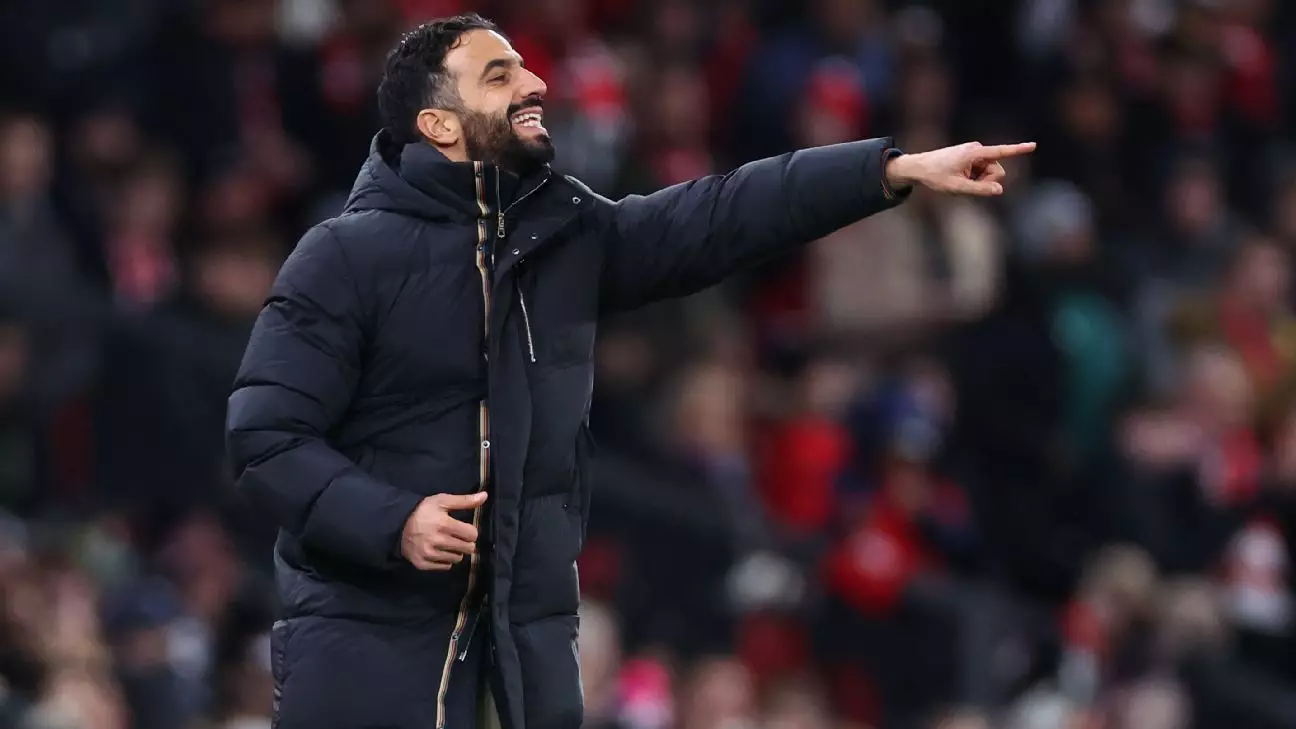Ruben Amorim, the newly appointed manager of Manchester United, finds himself navigating an intricate web of challenges as he instills his tactical philosophy within the team. Following a turbulent start that saw him draw his opening match against Ipswich, Amorim’s tenure is characterized by palpable anxiety as players grapple with unfamiliar strategies. The thrill of securing his first win against Bodo/Glimt in the Europa League offers a glimpse of promise amidst the pressures of leadership.
For any manager stepping into the storied realm of Manchester United, expectations are as high as the iconic Old Trafford stands. Amorim, only 39, acknowledges the weight of this history as he attempts to mold his squad. His recent comments reveal a self-reflective struggle, as the uncertainties inherent in adapting to both a new league and a new team have understandably made him anxious. “I get anxious because I don’t know what will happen,” he candidly expressed, illustrating the tension between excitement for potential growth and the fear of the unknown that accompanies new beginnings.
Amorim’s tactical philosophy demands an intricate interplay of skills, precision, and teamwork, elements that take time to cultivate. During the encounter against Bodo/Glimt, the team’s initial hiccup—falling behind 2-1—highlighted how quickly things can spiral in football and launched the Portuguese coach into a whirlwind of introspection. Acknowledging that both strategy and familiarity with the players must evolve, he noted, “We are trying to see different things,” which reflects his desire to experiment while developing synergy among the players.
A recurring theme in Amorim’s managerial journey has been the commitment to player fitness. His willingness to make six changes for the match against Bodo/Glimt indicates that he recognizes the importance of rotation, especially as players adjust to his demanding style. However, this tactic also reveals the precarious balance between optimizing performance and managing fatigue, as seen with Rasmus Højlund, who appeared exhausted towards the match’s end. “I felt Rasmus Højlund was dead,” Amorim remarked, a testament to the physical and mental grind players endure under shifting tactical regimes.
As Amorim prepares for the upcoming clash against Everton in the Premier League, the sensible approach centers around further adapting his strategies and continuing to assess the physical readiness of his squad. The manager’s reflections signal a broader journey of growth not only for the team but for himself as he immerses in the rigors of managing one of football’s most illustrious clubs. The challenges laid out in the beginning could cascade into opportunities for development—provided Amorim can navigate this tumultuous yet promising landscape with poise and strategic insight. As he learns more about his players and pieces together his vision for United, fans remain hopeful that Amorim’s initial anxieties will give way to future success.

